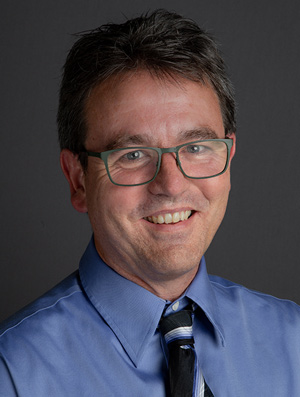
How to Choose the Right TESOL Program for You
My first question for someone who says they are interested in TESOL is simple: “What is your objective?”
We can think of TESOL certifications as a ladder. Some rungs may be easier to reach, but they also might not take you as far as you want to go. It's, therefore, important that you know all the options available to you through TESOL before you invest time and money into a program.
So, what is your objective?
“I want to earn money by travelling.”
For some people, the answer to the question might be, “I want to teach English in South Korea for a year and I think I need a qualification to do that.” This is also known as “TEFLing.”
To “TEFL” means to travel abroad on a short-term adventure, paying your way by teaching English, often in private language schools. If this is your objective, you probably only need an undergraduate degree (to be eligible for the working visa), and you likely won’t need a specific TESOL qualification to do what you want to do.
Some people will point to courses that you can take over two weekends that claim to be a TESOL qualification. The reality is that these short courses are not recognized in the TESOL profession even though the website might claim the program is accredited, and you would be able to get the same job abroad even without that qualification.
Key Takeaway: If your objective is to earn money while travelling, my advice is to research overseas jobs that provide some support and a bit of training and enjoy your travels. Of course, you’ll want to make sure that the learners you teach have access to a qualified and experienced teacher so that their education is not compromised in any way.
"I want a career teaching English but I want to spend as little time training as possible"
For others, the answer to the question “What is your objective?” is more detailed. You might want to be trained and qualified before working with immigrants here in Canada or beginning a long-term job teaching English abroad. You might also want to do so as quickly as possible.
If this describes your objective, an undergraduate degree plus a recognized TESOL qualification is going to be essential. Internationally, the minimum length for a recognized TESOL qualification that leads to employment is the equivalent of around 120 hours of training. The most well-known training program worldwide is called CELTA. CELTA and similar programs typically cost around $2,500. Of course, that’s in addition to the tuition cost of doing your undergraduate degree.
Canada is currently the only Western, native English-speaking nation that has a national accrediting body for TESOL programs. The role of this body, TESL Canada, is to determine the content and verify the quality of all TESOL programs in Canada according to set standards. At the undergraduate level, they have two standards with the least extensive being Professional Standard One, which is equivalent to the CELTA mentioned above.
Key Takeaway: The CELTA and TESL Canada Professional Standard One represent the first rung on the career/employment ladder. However, you don’t need to start on the lowest rung—you can start on a higher rung with as little as 130 hours more training.
"I want a long-term career teaching English and I want to be extensively trained for my future work"
TESL Canada Professional Standard Two requires a minimum of 250 hours of training and a significantly more extensive practicum. With the right qualification, you can jump straight onto that second rung.
There are several options to consider if you want that extensive training and the greater number of career opportunities it brings.
Key Takeaway: Many Professional Standard Two programs in Canada are designed as an add-on to an undergraduate degree in any discipline and you’ll need both the TESOL training and a degree to be eligible for employment. However, some programs actually integrate the training into the undergraduate degree meaning that there is no additional cost for gaining the TESOL qualification. This is a good option if you haven’t yet completed a degree!
"I want to be well qualified, but I also want to serve God effectively with my teaching"
If your objective is to gain a degree and a qualification that leads to employment both in Canada and abroad, I’ve hopefully already given you some compelling options. But that might not be your only objective.
If you want to use your skills and credentials for ministry purposes, there is one more thing you might want to consider.
Check Out Our Campus
Ever been to Caronport, Saskatchewan? Explore our campus virtually with our interactive campus map and learn more about what we have here.

There are TESOL programs in secular institutions that offer qualifications that put you on the first or the second rung of the career/employment ladder. But at a Christian institution that is TESL Canada accredited, you not only learn things like the general principles of classroom management just as you would at other institutions, but you also learn about foundational principles such as the theology of language and language teaching, practices such as praying for your learners while facilitating pair and group work, and developing content that might prompt learners to ask bigger life questions.
While you could learn this after graduation, studying TESOL together with your fellow students at a faith-based institution will certainly help if your objective is to be more than simply a skilled language teacher.
If you want to explore your options for faith-based TESOL programs in Canada, you will find a complete list of institutions with accredited programs on TESL Canada’s website. Just look down the list for the names of the faith-based institutions, then look across the list to see whether the program they offer is at Professional Standard One or Professional Standard Two.
When you have found programs of interest, contact the program leader and ask for information about the program, such as a program handbook and ask if you might be able to speak with current students and alumni.
Key Takeaway:
Although all programs on the list are accredited, not all programs are created equal, and finding the best fit will require some research.
Happy hunting!
Briercrest College offers a Bachelor of Arts degree and a two-year After-Degrees in Applied Linguistics. Both degrees are TESOL accredited by TESL Canada at Professional Standard Two. Briercrest students receive comprehensive in-class training and put their training to use through various practicums and internships. At almost 400 hours of TESOL and TESOL-related instruction, Briercrest has one of the most comprehensive undergraduate TESOL degrees in North America. Program alumni teach English here in Canada and worldwide.
Briercrest is now the only higher education institution in Saskatchewan that offers undergraduate-level TESOL training.

